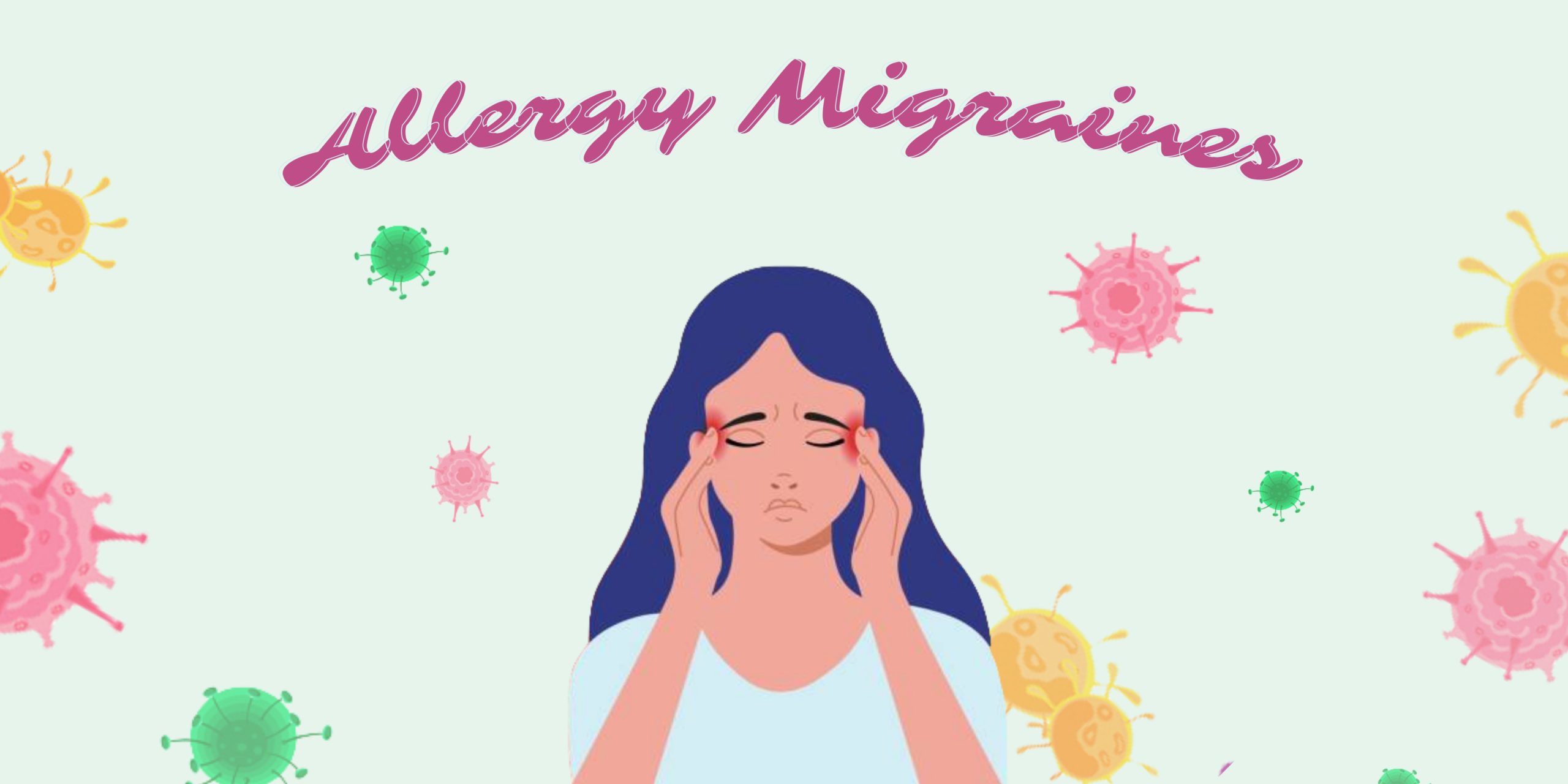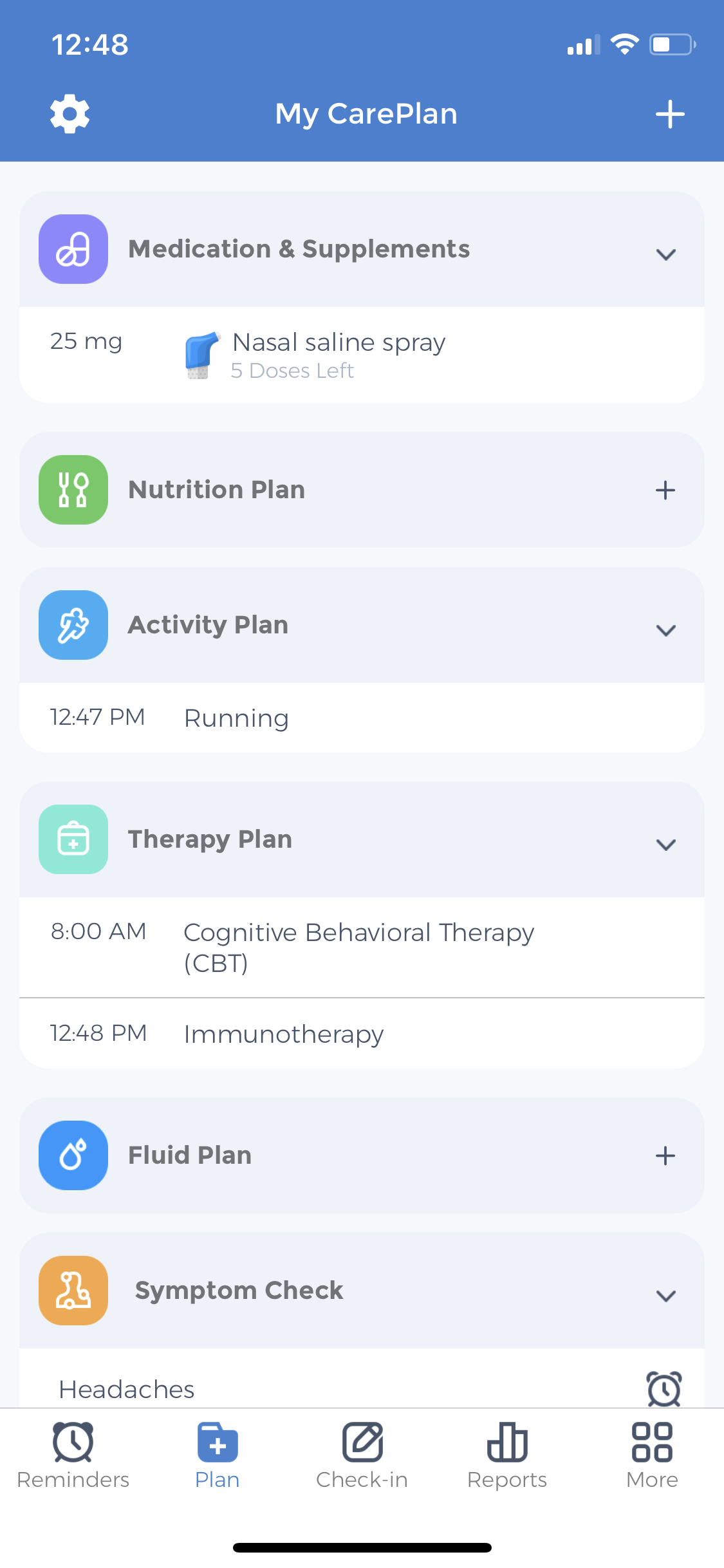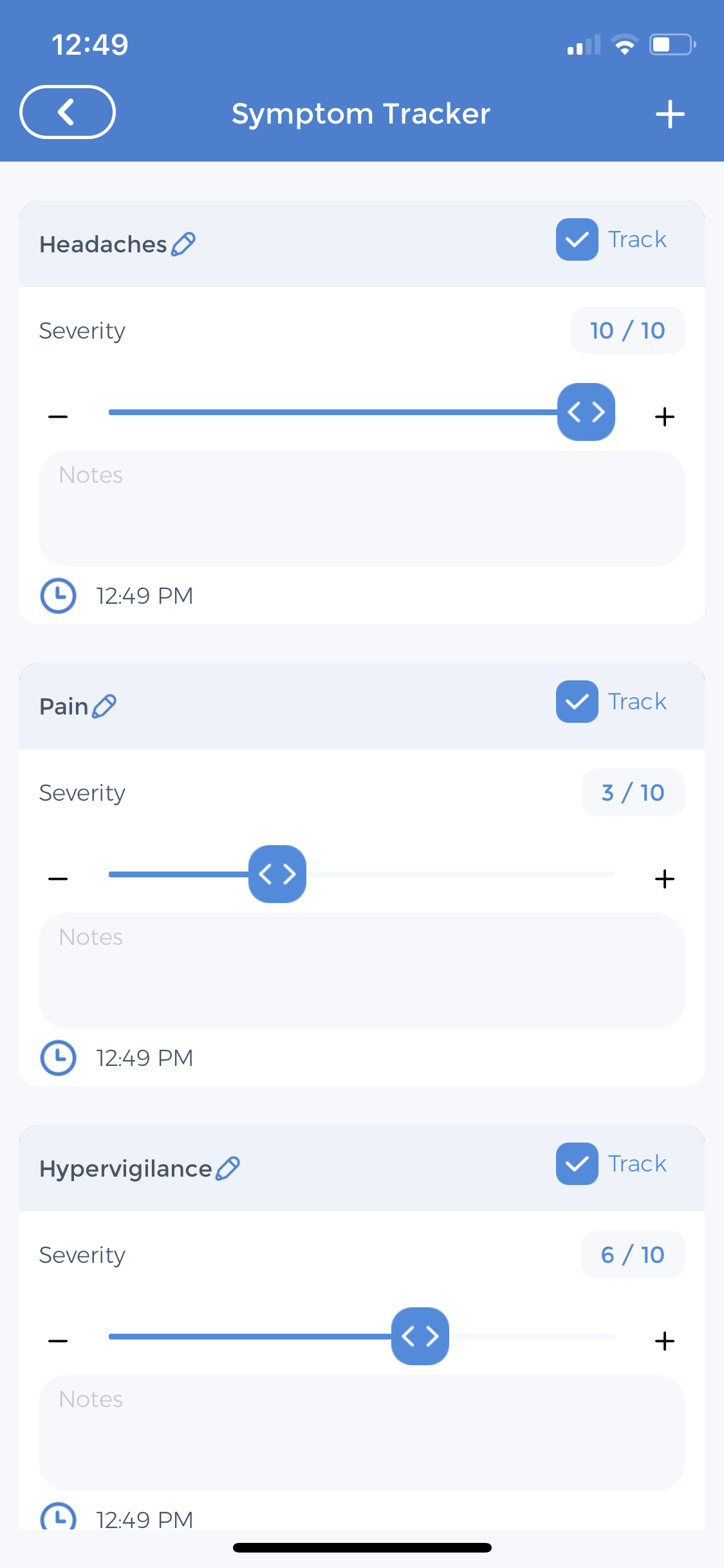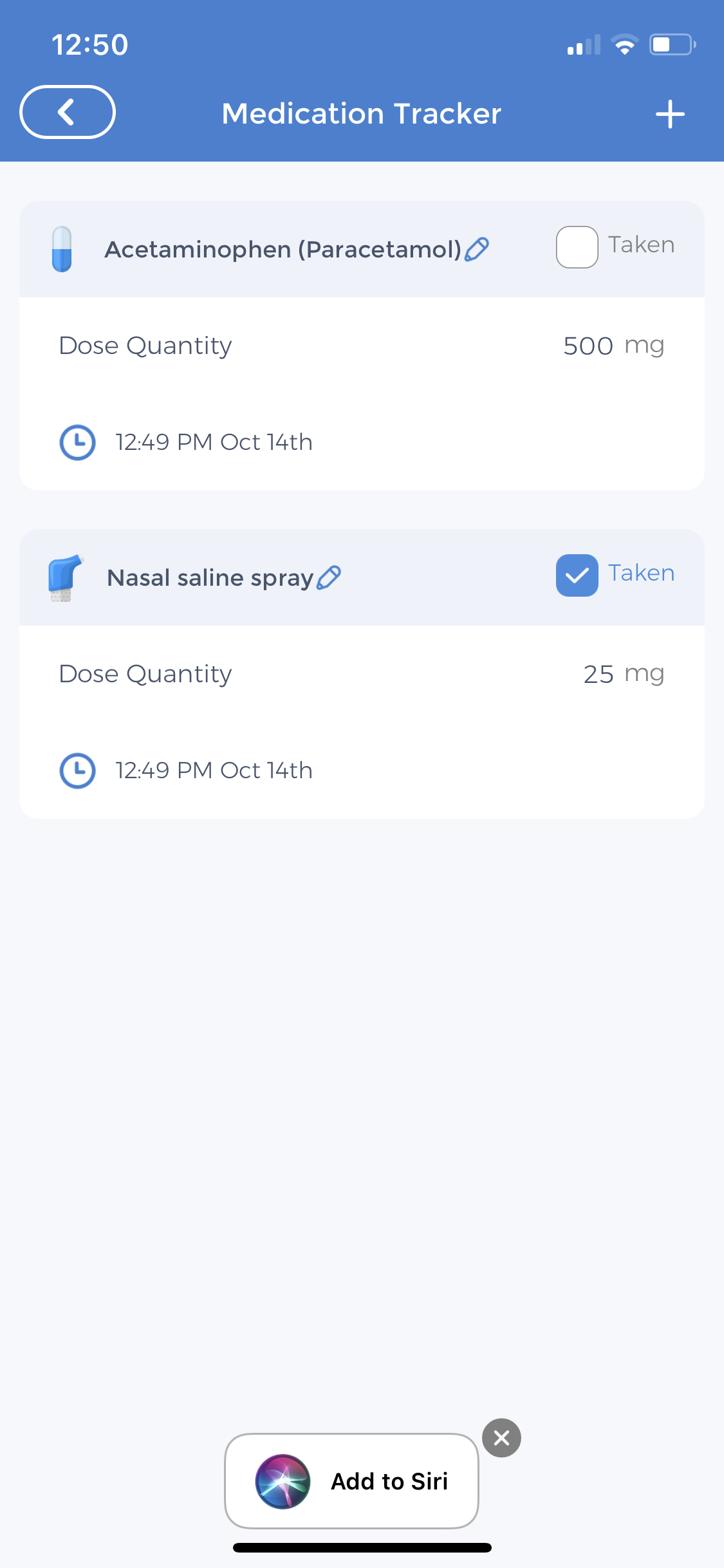
Do you suffer from seasonal allergies? Are your symptoms often accompanied by a headache or lingering migraines? Allergy migraines are a common medical condition and are more common in people who have constant allergies. Allergies can cause an allergic migraine, which is a form of migraine headache. It could start with moderate nasal allergy symptoms and quickly worsen. Keep reading to learn how to effectively manage symptoms of allergy migraines.
Understanding Allergy Migraines
Migraine and allergies are both fairly prevalent. It’s not uncommon for someone to suffer from both. You have a sensitive nervous system if you suffer migraines. Your body is prone to overreacting to changes in your environment that it interprets as hazards. Furthermore, your immune system releases chemicals when reacting with substances you’re allergic to. They can cause inflammation all across the body, that could provoke a migraine. If you’re prone to migraine headaches, allergy periods may intensify your symptoms.
Difference Between Sinus Headache & Allergy Migraines
Allergies cause two types of headaches: sinus headaches and migraines. You might suspect you have a sinus headache if you feel pressure in and around your nasal cavity. However, you could be suffering from an allergy-related migraine. Looking at your symptoms and having a diagnosis to treat you will help you determine if you have a sinus headache or a migraine. Managing your allergy symptoms may also aid with migraine relief.
Clogging sinus passageways behind the eyes, nose, cheeks, and forehead trigger sinus headaches. You may notice this on one or both sides of your head. Sinus headaches are most common during allergy season. The sinuses can also be stimulated by something external. Although both types of headaches have similarities, they differ in intensity from one another. The unique symptoms associated with migraines are some of the primary symptoms that differ from other headaches. Other forms of headaches don’t typically have these symptoms. Nausea, vomiting, light sensitivity, and sound sensitivity are among some of the distinctive symptoms.
Allergy Headache Symptoms
The intensity of an allergy headache can range from dull to nearly unbearable. The intensity of your discomfort may also vary depending on whether you are standing or lying down.
- Throbbing sensation
- Nausea
- Burning
- Insomnia
- Nasal Congestion
- Moodiness
- Depressing mood
- Neck pain and stiffness
- Anxiety
- Trouble concentrating
- Sensitivity to smell, light and sound
- Worsening pain with physical activity
- Vomiting
- Euphoric mood
- Fatigue
- Lack of comprehension
- Inability to concentrate
If you have a migraine with aura, you may have additional migraine symptoms. Vision disturbances such as iridescent spots or blinking lights, numbness or tingling are all possible symptoms of allergy migraines that include aura. These symptoms can appear minutes or even half an hour before the migraine starts.
Most people with allergy migraines face postdrome sickness. A “migraine hangover” is the common name for the postdrome migraine stage. The resulting migraine hangover or the postdrome stage refers to the lingering pain. This pain can be present through the entire body or a specific area. These are the last few hours of the pain in the migraine stage, hence, the symptoms are less in severity. To read more about postdrome migraines, check out our blog post here.
What Causes Allergy Migraines?
The initial migraine pain happens due to waves caused by the activity of group exciting brain cells. These trigger chemicals, such as serotonin to narrow blood vessels. Serotonin affects every part of your body, from emotions to your motor skills. It is considered a natural mood stabilizer and is a necessary chemical for communication between nerve cells. Due to narrowing blood vessels throughout the body as a result of excess serotonin, chemical levels fluctuate. Fluctuating levels eventually lead to a migraine.
There are no conclusive answers as to why allergies and migraines are correlated. It’s possible that these conditions lead the body to release histamine in relation to internal and external environmental events. Congestion, as well as additional sinus pain and pressure, might arise as a result of this.
Development of Migraines
Although no distinct connections can link the causes of allergy migraines, there are some common possibilities why migraines occur in the human body.
- “Non-allergenic” triggers: Certain individuals face “non-allergenic” triggers for migraines from strong scents. This mostly includes powerful scents such as perfume and gasoline.
- Hormonal changes: Migraines caused by hormones primarily affect women. The hormones are estrogen and progesterone. They regulate the menstrual cycle and pregnancy, and so, have an effect on the chemicals in the brain that cause headaches. Consistent estrogen levels may help with headaches, however, estrogen levels that decrease or vary can trigger headaches.
- Genetics: In migraines, genetics play a critical impact. As a result, it is frequently passed on by families. There is no summary of inheritance where certain genes cause migraine in the more prevalent types of migraine. A number of genes are considered to be implicated, with vulnerability in those genes. This is a correlation. Correlation means if you have a precise genetic variant, you’re more likely to develop complications. People with these genes are more sensitive to changes in their environment. Most often these are lifestyle variables and triggers, which might cause an attack.
How to Treat Allergy Migraines?
Over-the-Counter Medications
- Antihistamines: Histamine is a vital molecule that plays a part in a variety of body functions. It boosts stomach acid secretion, inflammation, dilates blood vessels, changes intestinal and lung muscle contractions. Histamine also influences your heart rate. It is released because of allergen threats. Allergy symptoms occur by histamine, which causes vessels to expand and dilate. Antihistamines are drugs that function against histamine. This is a prescription drug that restricts what histamine does, hence giving relief to allergy symptoms.
- Decongestants: Decongestants operate by constricting blood arteries. This helps in the relief of nasal congestion producing by the dilatation of blood vessels. Pills, liquids, nasal sprays, and drops are all forms of decongestants. Congestion can be relieved temporarily with these over-the-counter medications. They do not, however, address the underlying source of allergies. They simply provide relief from one of the more bothersome symptoms of inhalant allergies. Decongestants are reasonably priced and widely available.
Prescribed Medications & Treatments
- Immunotherapy: Immunotherapy comprises slowly increasing doses of the substance, or allergen, to which the individual is allergic. The immune system becomes less sensitive to the allergen as the dose increases. This happens by triggering the creation of a “blocking” antibody. As a result allergy symptoms are minimized when the chemical is contacted again. Immunotherapy helps with congestion and migraines by reducing inflammation.
- Psychotherapy: When stress is a factor affecting migraine headaches, psychotherapy may help a person cope with stress and therefore reduce migraine headaches.
- Triptans: Triptans are used to treat migraines in a variety of methods. Constricting blood arteries in the brain, decreasing inflammation, and inhibiting pain pathways are all examples. They function similarly to serotonin, a brain neurotransmitter. This reduces the activity of hyperactive pain nerves. To put it in simpler words, triptans work by reversing the changes in your brain that produce migraines.
- Nasal Cromolyn: This drug is used to avoid nasal allergy symptoms. Seasonal allergies and other allergens cause stuffy/runny noses, mucous draining into the back of the throat, itching, and sneezing. It works by blocking the release of histamine and other natural chemicals.
Psychotherapy for Migraines
There is still no cure for a migraine. It varies from one person to the next. Current migraine therapies don’t work for everyone, despite the fact that several drugs and lifestyle changes have been demonstrated to lessen migraine frequency and intensity. The reality of living with migraines can be difficult to face, especially for those who suffer from allergies on a regular basis. When medicines and other therapies aren’t enough, psychotherapy or behavioral health approaches may be helpful.
How Do Behavioral Health Approaches Work?
By promoting the development of skills that strengthen your ability to manage pain and minimize headache-related psychological discomfort, treatments such as cognitive behavioral therapy (CBT) aids in the reduction of the harsh cycle. CBT is a scientifically validated psychotherapy that employs a variety of cognitive and behavioral tactics. What we think determines a lot of how we feel. This concept supports CBT. Unhelpful thoughts and responses to stressful events are identified and challenged using cognitive methods. They hope to improve headache sufferers’ ability to engage in behaviors that help them control their headaches better. Treatments typically include:
Relaxation Methods
There is an emphasis on controlling body functions such as muscle tension and respiration. Progressive muscle relaxation is one of the most well-studied relaxation techniques. This treatment begins with advice on how to calm your breathing before leading you through a series of exercises that help your tense and relax your muscles. The goal is to improve muscular tension recognition and regulation as it relates to headaches. Relaxation operates on the entire body, unlike biofeedback, which targets specific regions of the body. There is a force on controlling body functions such as muscle tension and respiration.
Stress Management
Monitoring stressful conditions and how they relate to headache frequency and intensity is a common part of headache stress management training. Patients also learn how to solve problems more successfully, which can help with a variety of headache-related issues. Cognitive restructuring techniques are frequently used to view pain and stressful situations more objectively. This can help respond more effectively whether facing pain or stress.
Managing Allergy Migraines with a Headache Log
It is critical to discover the right treatment for each person in order to successfully fight recurrent migraines. There is no treatment for migraine attacks or the subsequent migraine hangover, but sticking to a routine can assist. A headache log can aid in the discovery of a pattern in the symptoms and emotions connecting with an oncoming headache. Keeping track of early symptoms is critical for catching and treating migraines early on. Early therapy reduces the severity of the headache and, if handled appropriately, can even stop a migraine episode.
Understanding your personal migraine journey is crucial to keeping a healthy routine and avoiding migraine attacks. The CareClinic app allows you to keep track of your symptoms while also allowing you to focus on yourself and your well-being to aid your body’s recovery from migraine attacks and their aftereffects. CareClinic is an all-in-one care app. Anyone can use and access the interface. It is available 24 hours a day and is user-friendly.
Unique Curated Care Plans

On the bottom of the app, there is a ribbon with a “plan” tab. Clicking on that button leads to a page called “My CarePlan.” Many features can be added to your personal care plan. This is unique for each individual according to your needs. Medicines and supplements, a nutrition plan, an activity plan, a symptom check, and a measurement check are all check-ins you can make within the application. A symptom check is an extremely crucial tool for allergy migraines tracking. An incoming burst of symptoms indicates the prodrome migraine stage. You can identify patterns to avoid in the future by tracking downtimes of the day when you experience these symptoms.
Check in with the app every day and if you forget you fear not, the app will send a reminder. The check-in will link to an existing care plan you create. If you do not want to create your own care plan there are also hundreds of pre-existing care plans to choose from. These unique care plans each have a set of activities and customizable features according to your healthcare needs.
Practicing Mindfulness

You can sum up all your thoughts in an endless number of entries per day using the diary entry tab on the CareClinic App. Using diary entries to manage your allergy-related migraines keeps helps ensure all of your thoughts are in one place. You can also keep track of your migraine attacks and the emotional reactions you have to them for your doctor. To help manage stress using the journal prompt feature. More information on the advantages of journaling may be found here. Additionally, you can use the prompt function if you don’t know what to type.
Each topic focuses on a different area of mental health, and the premium account offers you access to 16 journal prompts. A section where you can add lists, bold, add emphasis, and highlight crucial phrases is also available in the structure. In-app users can also add images to their diaries to make them more personal. What’s the best part? Users of the CareClinic App can add as many entries as they need to meet their needs. The entries in your diary are automatically saving, so you can go back and work on them the next day.
Tracking your Symptoms

You can pick and choose from a list of medical symptoms to include in your daily check-in or diary entry. Fatigue, depression, insomnia, headaches, and throbbing sensations are all common migraine symptoms. Furthermore, you may keep track of the onset date, frequency, and strength of a symptom using the symptom tracker’s drop-down menu.
Additionally, you can also keep track of your sleeping patterns, daily physical activity, nutrition, and other metrics to generate accurate body reports. You can also create custom fields to keep track of what’s important to you! Your symptom monitoring aids your healthcare provider in making more informed and precise decisions.
Keeping a Log of your Medications

Migraines are unpredictable, so keeping track of your health is critical for progress. A medication journal keeps track of the medications that must be taken on a regular basis. You can keep track of everything related to the medication you’ve consumed with CareClinic. The dosage, directions, purpose, side effects, and physician/pharmacist(s) who prescribe the drugs, as well as the relevant contact information, are all included (useful for refills). Any allergic migraine medications that are recommended by your doctor can be entered here to keep track of your progress.
Medication records force you to keep track of your treatments. It improves drug adherence by allowing you to track the success of your treatment as well as its effects on your overall health. It will help first responders to rapidly identify the medicine to which you are allergic in the event of an emergency, potentially saving your life.
Leveraging Digital Health Strategies
Allergy migraines are an ongoing health condition that causes restlessness and might cause you to miss out on important duties. With the CareClinic app, managing migraines and tracking allergies are simple. The application services are developed to reduce stress and make it easier to manage medical issues. Now is the time to download the app and start monitoring your progress toward better health.


